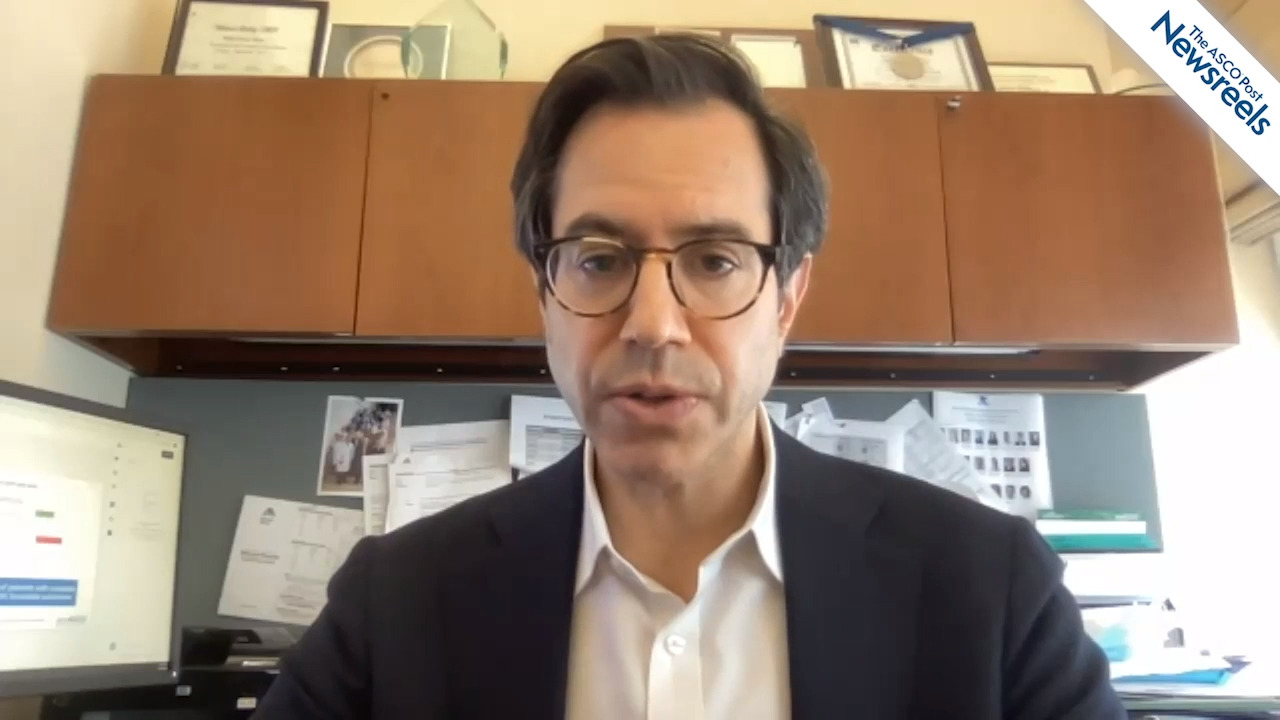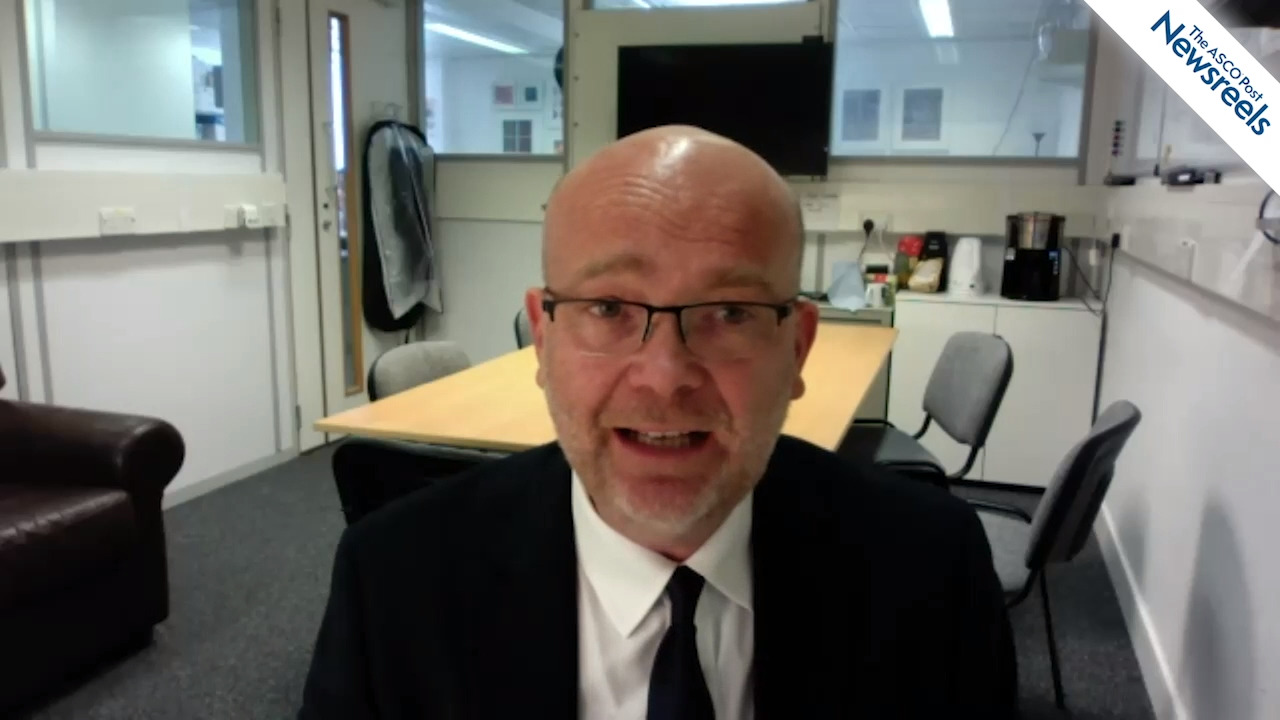Ian Chau, MD, on Esophageal Squamous Cell Carcinoma: Nivolumab, Ipilimumab, and Chemotherapy for Advanced Disease
2021 ASCO Annual Meeting
Ian Chau, MD, of Royal Marsden NHS Foundation Trust, discusses first results of the CheckMate 648 study, which showed that nivolumab plus chemotherapy and nivolumab plus ipilimumab both demonstrated superior overall survival vs chemotherapy alone in patients with advanced esophageal squamous cell carcinoma. These regimens may represent potential new first-line treatment options (Abstract 4001).
The ASCO Post Staff
Michael J. Morris, MD, of Memorial Sloan Kettering Cancer Center, discusses phase III results of the VISION study, which showed that lutetium-177–PSMA-617 (LuPSMA), a targeted radioligand therapy, plus standard-of-care treatment improves radiographic progression-free survival and extends overall survival compared with standard of care alone in men with metastatic castration-resistant prostate cancer (Abstract LBA4).
The ASCO Post Staff
Matt D. Galsky, MD, of the Tisch Cancer Institute at Icahn School of Medicine at Mount Sinai, discusses results from a phase II trial designed to test gemcitabine and cisplatin plus nivolumab as neoadjuvant therapy in patients with muscle-invasive bladder cancer and to better predict benefit in those who opted out of cystectomy (Abstract 4503).
The ASCO Post Staff
Andrew Tutt, PhD, MBChB, of the Institute of Cancer Research, London, discusses findings from the phase III OlympiA trial, which showed that adjuvant olaparib, a PARP inhibitor, following adjuvant or neoadjuvant chemotherapy, may improve invasive disease–free survival in patients with germline BRCA-mutated and high-risk HER2-negative early breast cancer, which might lead to a new indication in this setting (Abstract LBA1).
The ASCO Post Staff
Melinda L. Telli, MD, of Stanford University, discusses results of a phase II study on neoadjuvant talazoparib in germline BRCA1/2 mutation–positive, early HER2-negative breast cancer. In this setting, talazoparib monotherapy was active and yielded pathologic complete response rates comparable to those observed with combination anthracycline and taxane-based chemotherapy regimens (Abstract 505).
The ASCO Post Staff
Linda R. Mileshkin, MBBS, MD, of the Peter MacCallum Cancer Centre, discusses phase III findings from the OUTBACK trial, which showed that adjuvant chemotherapy given after standard cisplatin-based chemoradiation for women with locally advanced cervical cancer did not improve either overall or progression-free survival (Abstract LBA3).





